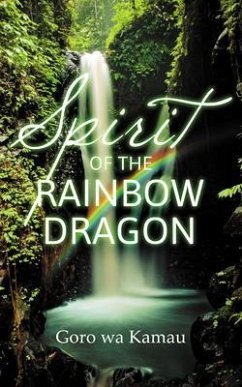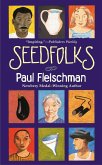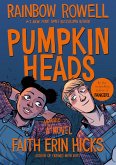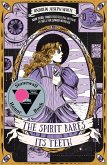Spirit of the Rainbow is anchored on the ancient Kikuyu myth about the legendary "rainbow dragon" (Ndamathia in Kikuyu language), a reptilian creature which was traditionally associated with the transfer of power from one ruling generation of elders to the next. When the Christianity arrived in Kikuyuland, Biblical translators appropriated "ndamathia" to represent the devil.
At a subtle level, the invocation of the rainbow dragon in the novel is an attempt to artistically restore the mythical figure to its symbolic role in fostering social change. In this role, it provides an important trope for dealing with the theme of generational change. Apart from mythology, the novel is also informed by contemporary reality. An example is the growing of bhang (marijuana), which is illegal in Kenya in the Mount Kenya forest by powerful or well-connected people. Aside from the harmful effects drugs have on the youth, this desecration of the forest is sacrilegious. The snow-capped mountain, the second highest in Africa, is regarded as sacred by the Kikuyu people who live on its forested slopes. It was also one of the important hideouts of the Mau Mau fighters during the anti-colonial struggle in 1950s. This explains the peoples' concern about the degradation of the forest.
The novel is further informed by popular culture. An example relates to the construction of the railway line to Nanyuki. The line was supposed to move on to Isiolo, further north, but the engineers-so goes the story-got distracted by the permissiveness of life in Nanyuki town. They lost their maps, and the line had to terminate at Nanyuki at a place called Mwisho ("the end" in Kiswahili). The legend of how this happened is narrated in a popular song by 'Kajohnnie' Kariuki and is invoked in the novel.
At a subtle level, the invocation of the rainbow dragon in the novel is an attempt to artistically restore the mythical figure to its symbolic role in fostering social change. In this role, it provides an important trope for dealing with the theme of generational change. Apart from mythology, the novel is also informed by contemporary reality. An example is the growing of bhang (marijuana), which is illegal in Kenya in the Mount Kenya forest by powerful or well-connected people. Aside from the harmful effects drugs have on the youth, this desecration of the forest is sacrilegious. The snow-capped mountain, the second highest in Africa, is regarded as sacred by the Kikuyu people who live on its forested slopes. It was also one of the important hideouts of the Mau Mau fighters during the anti-colonial struggle in 1950s. This explains the peoples' concern about the degradation of the forest.
The novel is further informed by popular culture. An example relates to the construction of the railway line to Nanyuki. The line was supposed to move on to Isiolo, further north, but the engineers-so goes the story-got distracted by the permissiveness of life in Nanyuki town. They lost their maps, and the line had to terminate at Nanyuki at a place called Mwisho ("the end" in Kiswahili). The legend of how this happened is narrated in a popular song by 'Kajohnnie' Kariuki and is invoked in the novel.
Dieser Download kann aus rechtlichen Gründen nur mit Rechnungsadresse in A, D ausgeliefert werden.









